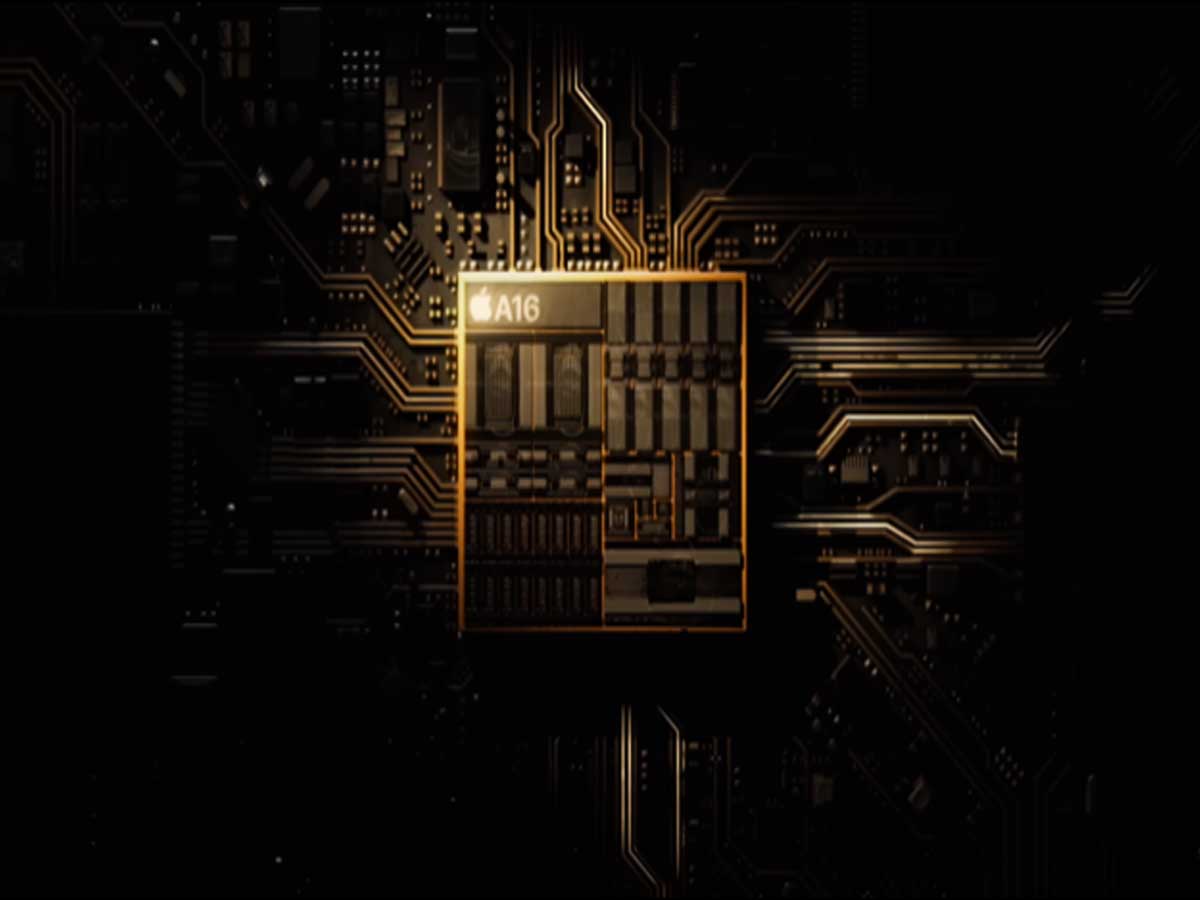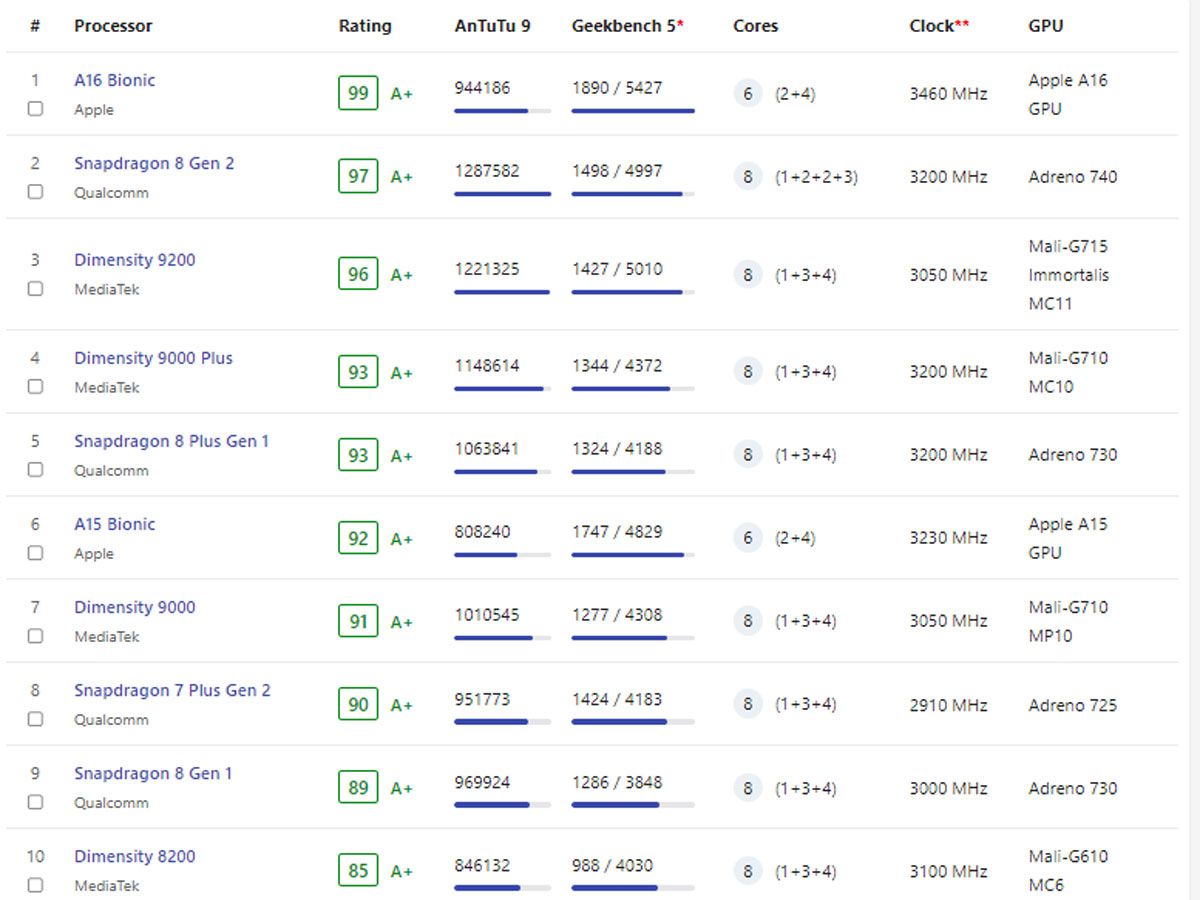Smartphones have become an integral part of our lives, with over 6.92 billion, meaning 86.29% of the world's population owning smartphones. From staying connected with loved ones to watching videos, playing games, and browsing the web, our smartphones are always with us. But have you ever wondered how these tiny devices can do so much? The answer lies in the smartphone processor, the component that acts as the brain of your device, controlling everything from how fast your apps run to the quality of your graphics. In this article, we will extensively explore smartphone processors, including their definition, functionality, and importance in enhancing the performance and features of your smartphone. So, get ready to learn everything you need to know about the processor that makes your smartphone tick!
What is a Smartphone Processor?
The smartphone processor is like the brain of a mobile device, playing a crucial role in its functioning. It controls various functions such as data processing, running applications, and managing battery life. This tiny computer chip is integrated into the device's circuitry and can execute millions of instructions per second.

It's important to note that a smartphone processor and a human brain while sharing some similarities, are fundamentally different in their functions. The human brain is a complex and intricate organ that controls and coordinates bodily functions like movement, thought, and perception. It's also a self-learning and adaptive system that can improve its abilities over time.
In contrast, a smartphone processor is a designed and programmed system based on pre-set algorithms and instructions. Therefore, it cannot learn or adapt to new situations, at least not without updates or new software. Although the human brain cannot match its computational power, this technology has the ability to perform millions of operations per second.
How a Smartphone Processor Works
A smartphone processor is a complex piece of technology that enables a phone to perform various functions. At its most basic level, a smartphone processor is a miniature computer chip that is responsible for carrying out the device's operations. It is the "brain" of the smartphone, controlling all of its functions, from basic tasks like launching apps to more complex ones like video processing and gaming.
The processor works by receiving instructions from the phone's software and interpreting them to execute the necessary tasks. This process occurs millions of times per second, and the processor must be able to quickly and efficiently process these instructions to ensure the phone runs smoothly. To achieve this, the processor is divided into multiple cores that can work simultaneously to complete tasks faster.
The processor also contains a cache, which is a small amount of memory used to store frequently used data. This allows the processor to quickly access commonly used data, reducing the time it takes to complete tasks. The cache is divided into multiple levels, with each level providing faster access to data but having less storage capacity than the level below it.
In addition to the cache, the processor contains other components like the memory controller, which manages the phone's RAM, and the graphics processing unit (GPU), which is responsible for handling the device's graphics-intensive tasks. All of these components work together to ensure that the processor can efficiently carry out the phone's operations.
Factors Affecting Processor Speed
Several factors can influence the speed of a smartphone processor, and understanding these factors is essential in choosing the right smartphone for your needs. One of the primary factors that affect processor speed is the number of cores. A processor with multiple cores can perform several tasks simultaneously, resulting in faster processing times. In general, a processor with more cores can perform tasks faster.
One important factor in a processor's processing speed is its clock speed, measured in Gigahertz (GHz). The clock speed determines how many cycles a processor can perform per second. While a higher clock speed can result in faster processing times, it's essential to consider other factors, such as the number of cores and the processor's architecture efficiency, to determine overall performance.
The amount of RAM also affects processor speed. RAM is a temporary storage space for data the processor needs to access frequently. A larger RAM size means the processor can access more data faster, resulting in faster processing times. A faster RAM speed can help the processor access data more quickly.
The efficiency of the processor's architecture can also impact its speed. A processor with a more efficient architecture can process data more quickly and use less power than one with a less efficient architecture. Efficiency is often improved through advancements in manufacturing technology, such as the use of smaller transistors, which allows for more components to be packed into a smaller space, resulting in faster processing times.
Finally, the type of tasks being performed also influences processor speed. Tasks that require more processing power, such as running demanding applications or playing graphics-intensive games, will require a processor with more cores, higher clock speeds, and larger RAM sizes. On the other hand, simpler tasks like browsing the web or sending emails can be handled by processors with lower specifications.
The Components of a Mobile Processor
A mobile processor is a highly integrated system on a chip that combines various components to provide fast and efficient performance. The processor is the brain of the device, and its components work together to perform complex computations and run multiple applications simultaneously.
The central processing unit (CPU) is the primary component of a mobile processor responsible for executing instructions and performing calculations. Its speed is measured in gigahertz (GHz), with faster processing achieved with higher clock speeds. Modern mobile processors have multiple cores, allowing them to handle multiple tasks simultaneously.
Another important component of a mobile processor is the graphics processing unit (GPU). The GPU is responsible for rendering images and videos, and it is used for gaming and other graphics-intensive applications. Like the CPU, the GPU has its own clock speed and number of cores, which affects its performance.
The two types of memory that mobile processors depend on are random access memory (RAM) and read-only memory (ROM). RAM serves as temporary storage for data, while ROM is utilized for permanent storage of the operating system and other essential files. Memory is a crucial part of mobile processors.
A mobile processor also includes a digital signal processor (DSP), which is responsible for processing audio and video signals. It is used for voice recognition and noise cancellation and also enhances the camera's capabilities. The DSP is optimized for low power consumption and is designed to work efficiently with the CPU and GPU.

Finally, a mobile processor includes various other components, such as a modem, Wi-Fi and Bluetooth radio, and other peripherals. These components allow the processor to communicate with other devices and access the internet.
Processor Performance
Processor performance is a crucial factor that determines the overall speed and efficiency of a smartphone. The performance of a smartphone processor is measured in terms of clock speed, core count, and benchmark scores. The term "clock speed" refers to the number of instructions a processor can carry out in one second. Generally, higher clock speeds result in faster processing speeds. Core count, on the other hand, refers to the number of processing cores within a processor. More cores allow for better multitasking and can improve overall performance.
In addition to clock speed and core count, benchmark scores are used to measure processor performance. A benchmark is a standardized test that is designed to evaluate the performance of a processor under different conditions. There are several popular benchmarks, including Geekbench and Antutu, which are commonly used to evaluate the performance of smartphone processors. These benchmarks test different aspects of a processor's performance, such as processing speed, graphics performance, and memory performance.
Various factors can influence the performance of a smartphone's processor. One of these is the amount of RAM - having more RAM means better multitasking and overall performance. Additionally, faster storage options like UFS and NVMe can provide quicker access to data and processing. It's also important to have efficient software that optimizes processor usage and reduces strain, which can lead to better performance overall.
Popular Smartphone Processors
There are several companies that design and manufacture processors for mobile phones, but a few are dominant in the market. Qualcomm, Apple, Samsung, MediaTek, and Huawei are among the leading manufacturers of mobile phone processors.

Qualcomm is an American company that produces Snapdragon processors for Android phones. Their processors are known for their powerful graphics and advanced camera features, making them a popular choice for gaming and photography enthusiasts.
Apple, on the other hand, designs and produces its own processors for its iPhone models. The company's A-series processors are known for their exceptional performance, efficiency, and integration with Apple's iOS operating system.
Samsung, the South Korean tech giant, produces Exynos processors for its own Galaxy phones as well as for other smartphone brands. Their processors are known for their energy efficiency and fast speeds.
MediaTek is a Taiwanese company that produces processors for a wide range of smartphones, from budget to high-end devices. Their processors are known for their affordability, but they also offer advanced features such as AI capabilities.
Huawei, another Chinese company, produces its own Kirin processors for its smartphones. These processors are known for their excellent performance and efficiency, making them a popular choice among Huawei fans.

Each of these companies has its own unique strengths and weaknesses when it comes to mobile phone processors. The competition among these companies has driven the development of new and innovative features, leading to faster and more powerful processors that can handle complex tasks and improve the overall user experience.
Smartphones have become an indispensable part of our lives, and the role of the processor in their functioning cannot be overstated. As technology continues to advance, mobile phone processors are also evolving, providing faster speeds and improved performance, enhancing our user experience. Understanding the components and factors affecting the speed and performance of a smartphone processor is crucial for making informed decisions when purchasing a new device.
As top manufacturers like Qualcomm, Apple, Samsung, and MediaTek keep advancing mobile processor technology, it's our responsibility as consumers to select the smartphone processor that best suits our requirements. Whether we are using our devices for work, entertainment, or communication, having a powerful and efficient processor can make all the difference.
As we look toward the future, it is exciting to imagine the potential advancements that could be made in smartphone processor technology. It's possible that someday they will exceed the abilities of the human brain and change the way we engage with the world. Until then, we can continue to enjoy the impressive feats of technology that we carry in our pockets every day.
Source: cnbc.com / bankmycell.com / coolblue.nl / nixgle.com / harvard.edu / intel.com / androidauthority.com / nanoreview.net













